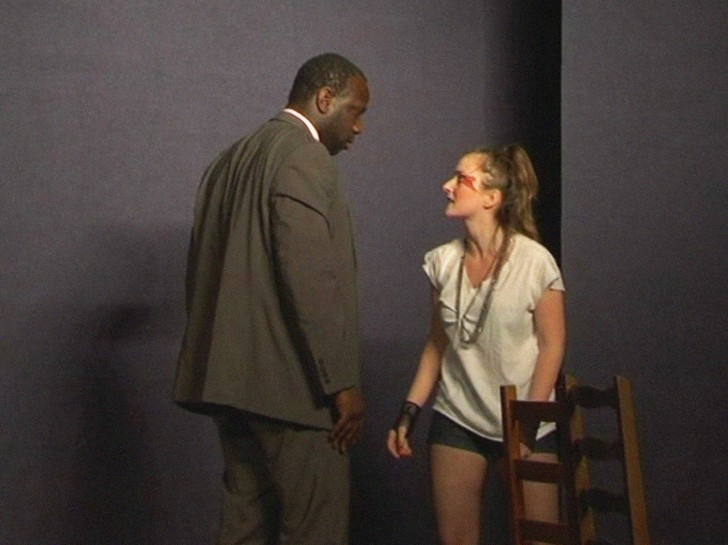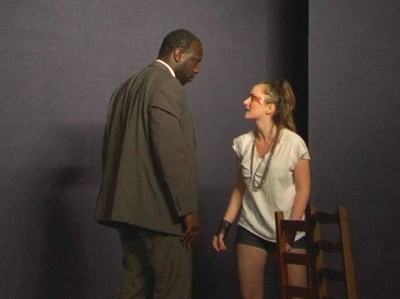
Towards Tenderness
Danton's Death
The cruelties, hypocrisies and vulnerabilities of toxic masculinity come under the microscope in Towards Tenderness, Diop’s compassionate but clear-eyed study of four men living in the banlieues of Paris: Régis, Rachid, Patrick and Anis. Having gained her subjects’ trust well before embarking on the production, Diop elicits intimate and wide-ranging confessions over a microphone and pairs these voiceover ruminations with restaged footage from everyday life in which the swaggering behaviors and poses on display often run counter to the ideas being expressed verbally. The director is again an active participant during the interviews, guiding the men toward self-reckoning with questions that dare them to examine the root sources of their often misogynistic attitudes toward women and their anxieties around the giving and receiving of love. Far more than a gotcha-style exposé, Towards Tenderness digs deeply into four troubled psyches to reveal a broader portrait of the developmental challenges embedded within a low-income, immigrant-heavy milieu.
With the ostensibly simple scenario of an aspiring Black actor struggling to make it in Paris, Diop’s debut Danton’s Death weaves a rich tapestry of ideas about class, race, careerism and the effects of all these pressures on the developing human psyche. Steve Tientcheu, a man in his late twenties from the public housing outskirts of Paris who idolizes French cinema heavyweights like Jean Gabin and Jean-Paul Belmondo, is the subject of Diop’s probing camera, which rarely leaves his side during this hourlong study. Eschewing much contextualizing footage of Tientcheu’s life outside his training at the prestigious Cours Simon drama school, Diop instead immerses herself in her subject’s acting classes, which offer sobering reminders of the limited opportunities available to and double standards foisted upon a talented thespian who nonetheless does not fit the mold of the well-heeled white Parisian who is typically granted access to such a program. Refusing to be a mere observer, Diop makes her presence felt in a series of penetrating interviews in which her questions and observations are left uncut. What results is an uncommonly insightful portrait of a young man gradually awakening—often in real-time—to the conditions of his own oppression.














